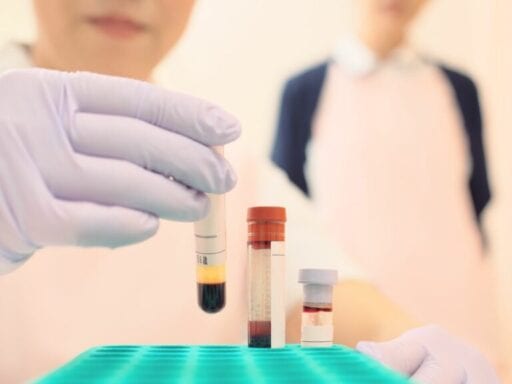Now one controversial startup is halting treatment.
People will do almost anything to preserve their youth, whether it’s stocking up on anti-aging skin care or splurging on nutritional supplements.
One unlikely practice that’s become increasingly visible is the prospect of paying for the blood of young people, with the belief that these transfusions could help fight aging.
Billionaires like venture capitalist Peter Thiel have reportedly expressed interest in these processes. The treatments, which have taken on a certain aura of tech world mythology, were also featured as a storyline on HBO’s Silicon Valley.
Now the practice has made its way to the Food and Drug Administration, which came out with a statement on February 19 to caution consumers to stay away from it.
About 14.6 million blood transfusions are performed in the US every year, according to the Centers for Disease Control and Prevention. Plasma, the liquid portion of blood, has proteins that help blood clot; it has long been recognized as a treatment for trauma patients, as well as ill or medicated patients whose blood doesn’t clot.
But the FDA warns that consumers should stay away from transfusions that claim to use the plasma of younger people for anti-aging reasons. While some limited studies suggest that these transfusions might fight off diseases like Alzheimer’s, Parkinson’s, heart disease, and multiple sclerosis, the FDA says these claims are not proven.
“There is no proven clinical benefit of infusion of plasma from young donors to cure, mitigate, treat or prevent these conditions, and there are risks associated with the use of any plasma product,” the statement reads. “The reported uses of these products should not be assumed to be safe or effective. We strongly discourage consumers from pursuing this therapy outside of clinical trials under appropriate institutional review board and regulatory oversight.”
The FDA also believes the practice has safety concerns. When it comes to plasma, it notes, there is no “information on appropriate dosing for treatment.” Plus, it adds, “large volumes of plasma […] can be associated with significant risks including infectious, allergic, respiratory and cardiovascular risks, among others.”
While the FDA didn’t single out any entity in particular, merely referring to young blood transfusion providers as “unscrupulous actors,” one prominent company in the field is Ambrosia, a San Francisco-based startup. It’s been around since 2016 and now has additional locations in Los Angeles; Omaha, Nebraska; Houston, Texas; and Tampa, Florida.
The company, founded by 33-year-old Stanford Medical School graduate Jesse Karmazin, charges $8,000 for a liter of blood from people ages 16 to 25, or $12,000 for two liters.
As of February 19, the company’s website read that per the FDA’s announcement, it had “ceased patient treatments.” Vox has reached out for comment and will update as we hear more.
In an interview at Code Conference in 2017, Karmazin said he’d had 100 customers pay for the blood that his company buys from blood banks. He stressed that not all of his customers are tech giants and that technically anyone over 35 is eligible for this type of transfusion. According to Business Insider, Karmazin had plans to open a clinic in New York City in 2019, and that Ambrosia had a long waitlist.
Karmazin reportedly started Ambrosia after reading studies about mice and a process called parabiosis, which involved conjoining their veins. One 2013 study found that some aging symptoms could be reversed in older mice when they received the blood of younger ones. The study hasn’t been replicated, and Karmazin has said that his company doesn’t claim to cure aging. But he told MIT’s Technology Review in 2017, “I think the animal and retrospective data is compelling, and I want this treatment to be available to people.”
After Ambrosia performed a clinical trial in 2017, Karmazin said the results were “really positive.” He also told Quartz that participants felt more energized. But medical professionals have called it “the scientific equivalent of fake news.” Two University of California Berkeley researchers who’ve published their own research about the blood transfusions of mice also called Ambrosia “dangerous.”
“They quite likely could inflict bodily harm,” Irina Conboy, one of the researchers, told Business Insider. “You are being infused with somebody else’s blood and it doesn’t match. That unleashes a strong immune reaction.”
The FDA is now asking that people come forward if they’ve had “any adverse events related to treatment with plasma from young donors for aging or related indications.”
Author: Chavie Lieber
Read More



